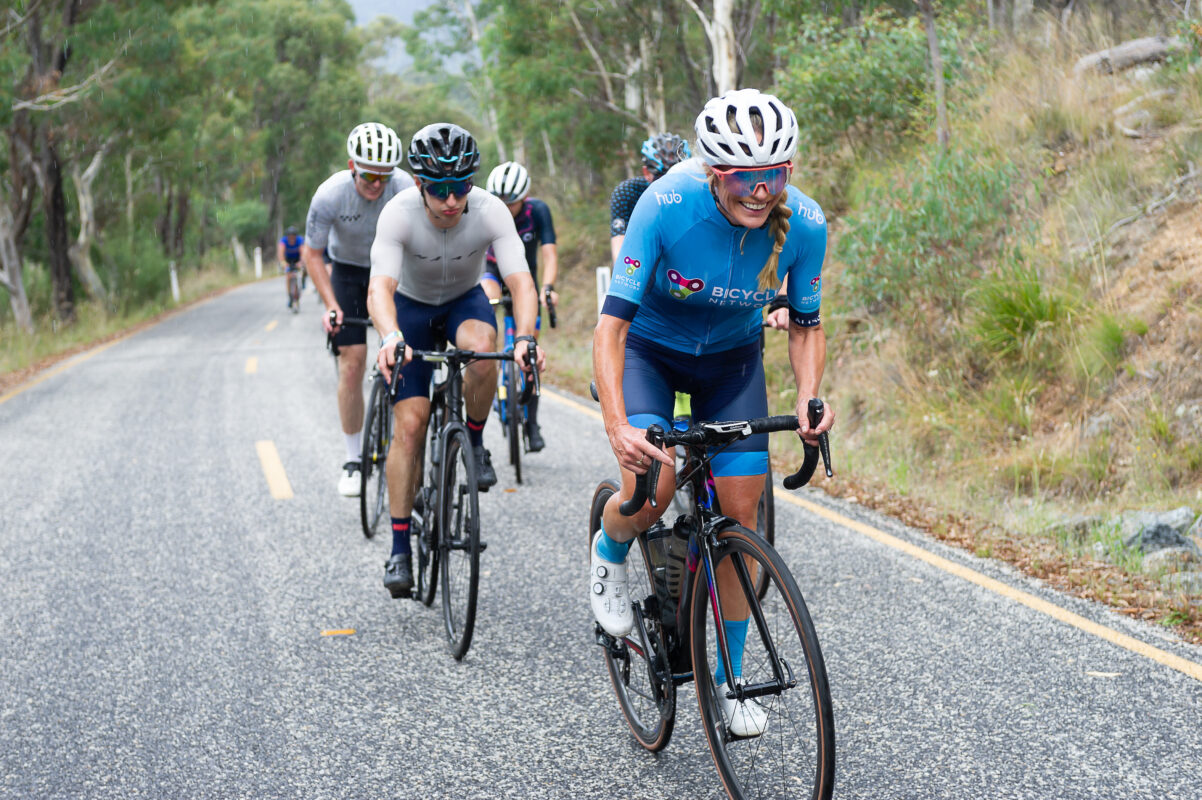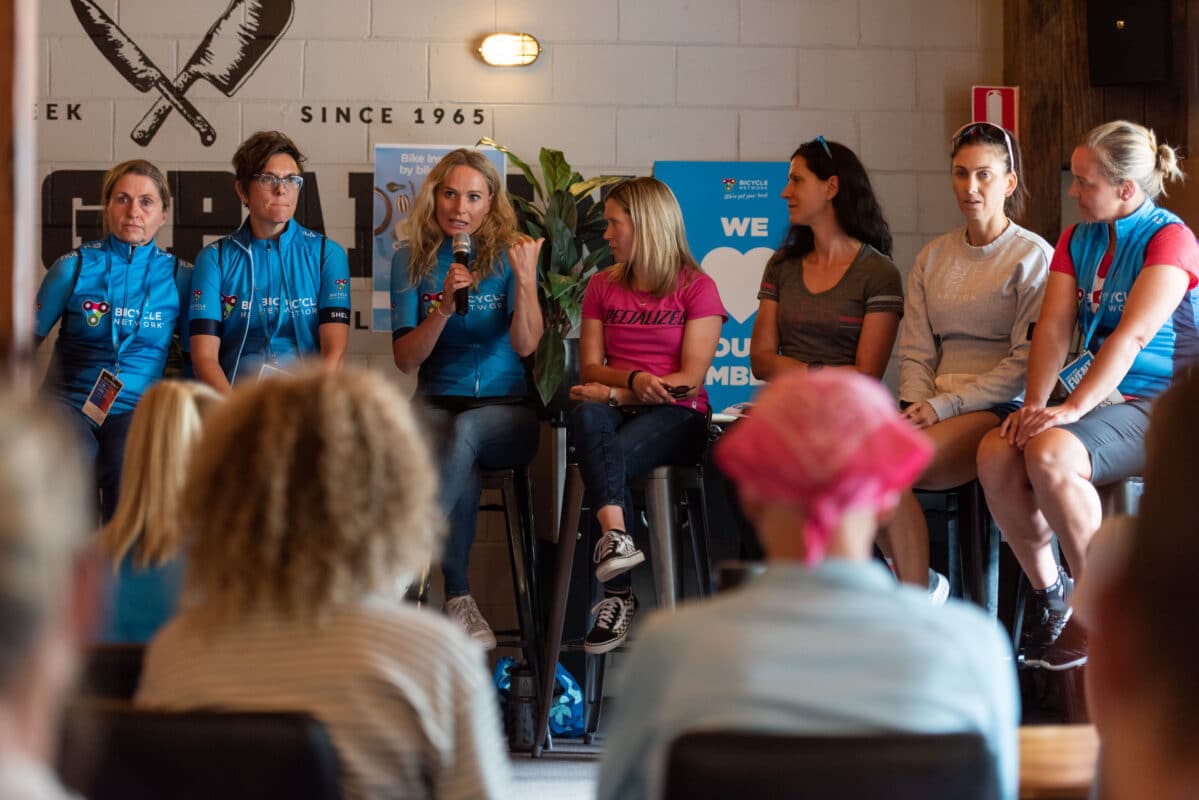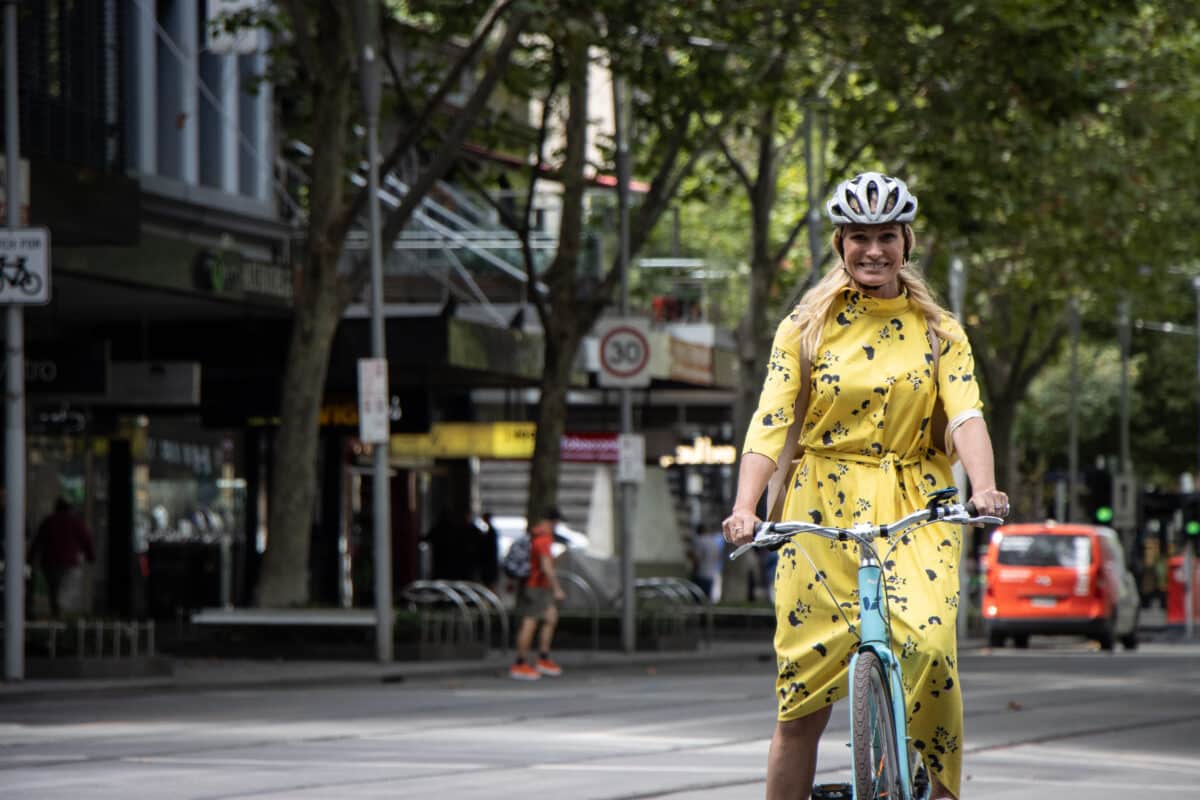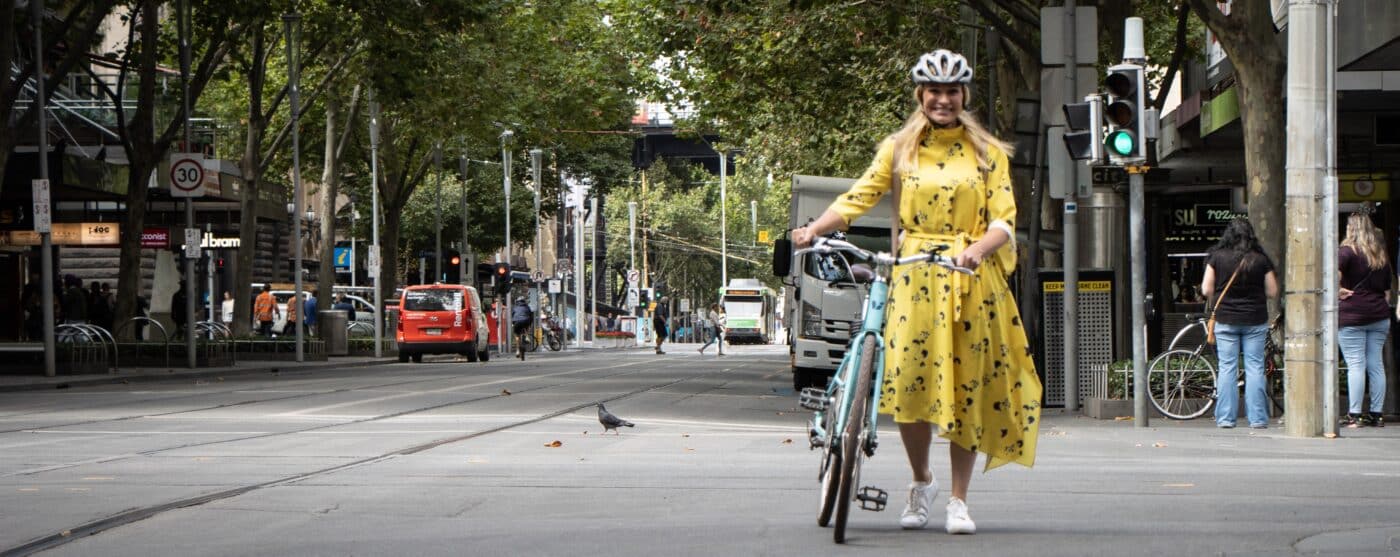Alison McCormack has been on many bike rides in her lifetime. She began riding to primary school, has raced bikes competitively and commutes to the office daily.
But one ride just over a decade ago ignited a fire inside and set her on a new path as a tireless ambassador to get more women riding bikes.
It was 2012 and the future Bicycle Network CEO was taking on Peaks Challenge for the first time, and keeping pace with a strong bunch of male riders. One turned to her in surprise and asked who she was.
"That's because I was one of only a few women on the ride," McCormack says. "I stuck with them through the first half of the ride, we had lunch and finished Peaks. Afterwards, one of them asked whether I’d like to be a wave leader and try to get more women to join Peaks?"
And there a passion for women’s advocacy in the world of bikes was born.

"When I was starting out, there weren’t women groups to ride with," she said. "I was riding in bunches with men, and my flatmate saw me one day and said, 'You were riding with so many guys! You were the only girl’.”
“But the faces in the bunches, and on the streets, are changing. There are a lot more women on the road now; some ride competitively, others ride bikes to work, some ride with their children to school and more women ride bikes for recreation and social connections."
In the decade or so since that pivotal Peaks Challenge, McCormack has continued to break down barriers.
As a long-time member of St Kilda Cycling Club, an ambassador for Bicycle Network's Women's Community and long-time volunteer working to boost participation, she has taken on some of the toughest rides in the country and inspired many other women to do the same.

And now as the first female CEO in Bicycle Network's near-50-year history, McCormack is looking to step up the pace.
"I'm at a point in my life where I can really make a difference," she explained. "The number one reason I hear that holds women back is concern about safety. We need to look at all the ways we can resolve those concerns.
"I also think there is a lot to be said for community connections that help to get women on bikes. I helped organise a women's ride in 2014 that still comes up in conversation, because women tell me that they are still riding with the other women they met that day."
McCormack rides her bike into work and pedals between meetings each day, so she knows first-hand how bike riding conditions can be improved. She has many ideas about how to make bike riding more accessible for everyone and she knows the many health and lifestyle benefits bike riding can bring.
"There is nothing better than riding a bike to work," she says. "It's a space between work and home life that gives you an ability to focus, and at the end of the day it's the perfect way to unwind. I have a spot in the road where I say, 'OK, time to stop thinking about work and switch off’."

McCormack doesn't consider herself an extraordinary person. Nor does she consider herself a competitive bike rider. She simply loves riding a bike.
By continuing to make bike riding easier for everyone in her capacity as Bicycle Network CEO, McCormack hopes to expose more people to the joys of using a bike to get around.
"Racing isn't for everybody, but many people are interested in riding a bike, whether it's for sport, for social reasons, for health or the environment," she says.
”Our population is increasing and more cars on our roads aren't the answer. We need to do things differently and influence the community so that more people can ride bikes safely. Because riding a bike can be life changing."
Become our friend
Find out more about Bicycle Network and support us in making it easier for people to ride bikes.


